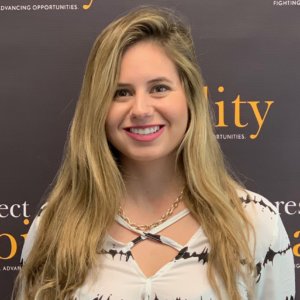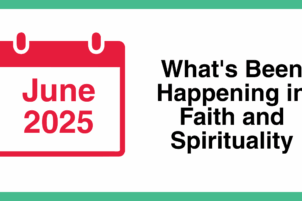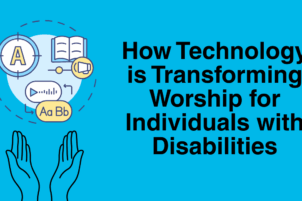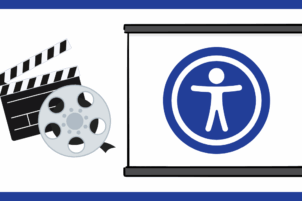 I don’t wear glasses, at least physically speaking. My identity as an American Jew with learning disabilities acts like glasses though. It is as if my disability is a lens teaching me the power of perspective. I can apply my Judaism lens to better understand my disability, and my disability helps me understand Judaism. Together both teach me the true meaning of otherness.
I don’t wear glasses, at least physically speaking. My identity as an American Jew with learning disabilities acts like glasses though. It is as if my disability is a lens teaching me the power of perspective. I can apply my Judaism lens to better understand my disability, and my disability helps me understand Judaism. Together both teach me the true meaning of otherness.
You know how when you are little and everyone asks you what you want to be when you grow up? You probably stared flatly at that adult, eyes gleaming with optimism, saying something cool like police officer, doctor, rocket scientist, maybe even President. But, for me, dreaming big meant being a school bus driver. I thought it would play to my strengths of talking to people.
The beginning of my scholastic career was not easy. Like the first time I kicked a soccer ball or swung a bat, it was more like trying to fit a refrigerator inside a football. I was placed in special education classes, but then the classes turned into more than just the coursework I did. They became a label by which I was defined and segregated.
My challenges at school only escalated as I grew older. My illiteracy climaxed in sixth grade when I was sent by my special ed teachers from public school to a school for students with disabilities, where my class included just six students and I was the only girl. The books at the school library were categorized by grade levels: for me, that was Dr. Seuss. I wondered if I was only as capable as a first grader.
But thankfully, one moment in this exceptionally challenging year was a turning point of perspective. As I began preparing for my Bat Mitzvah, my Jewish education continued to flourish despite my educational challenges. We learned the stories of our resilient history of a Jewish people that survived mass genocides, persecutions and face constant antisemitism – yet continue to work toward creating peace and prosperity.
Learning Jewish history and values at a young age helped me recognize when I was masking my disappointment with anger or began to internalize failure as an identity. I would be reminded of the great sacrifices of our people. Understanding the dangers of stigma on people can lead to the dehumanization – and then the persecution of my Jewish ancestors and of people with disabilities. Both groups, Jews and people with disabilities, were persecuted and murdered by the Nazis during World War II.
During Jewish Disability Awareness and Inclusion Month, I reflect on the role my Judaism plays in forming part of my identity. Judaic learning armed me with the tools I needed to overcome the limited expectations others had for me and piquedmy curiosity for what others believed was above my comprehension. I began to question the stereotypes I had accepted about myself and others, and I became determined to challenge the idea of marginalization based on other perspectives regardless of ability or religion.
This past Sunday, I assisted at an event sponsored by RespectAbility, a nonprofit organization fighting stigmas and advancing opportunities for people with disabilities, where I am lucky to be a Communications Fellow this semester. The goal of the Empowerment Training for Jewish Women with Disabilities was to prepare participants to take charge of their self-care and self-advocacy, and take action to get involved in civic life. It’s part of a six-part series aimed to upskill and empower women and girls with disabilities and their allies. We aim to see participants engage in NYC’s vibrant civic life as volunteers, board members and employees. Through this civic engagement, participants will be better prepared to bring the lens of inclusion and equity to this vital work, and hence help close the representational gap in participation and civic leadership.
I was mesmerized by the speakers. Every woman there had a story and a history that has helped shape the movements of Jewish involvement, disability activism and feminism. The event created a holistic understanding of how we relate while using the communities to empower women to be self-advocates.
I left empowered. As we networked with one another, we were reassured and validated of our experiences, which gave us power to be better self-advocates. In this connection, we created a community. The networks built and the positive energy at the event will stay with me for a very long time.
I’m living proof that one should always challenge pre-determined labels and stereotypes. I’m the kind of leader that values the individual, inclusion, unity and advocates for those who have been marginalized by others. I’m proud to be graduating from the George Washington University this spring. I look forward to devoting my life to helping young adults with disabilities and other marginalized backgrounds realize their potential.
In our weekly Shabbat Smiles, RespectAbility welcomes a wide spectrum of voices. The views expressed in each Shabbat Smile are those of the guest contributor.
The Shabbat Smile is curated and edited by Debbie Fink, RespectAbility’s Director of Community Outreach and Impact and Vivian Bass, RespectAbility Executive Committee Board Member.







